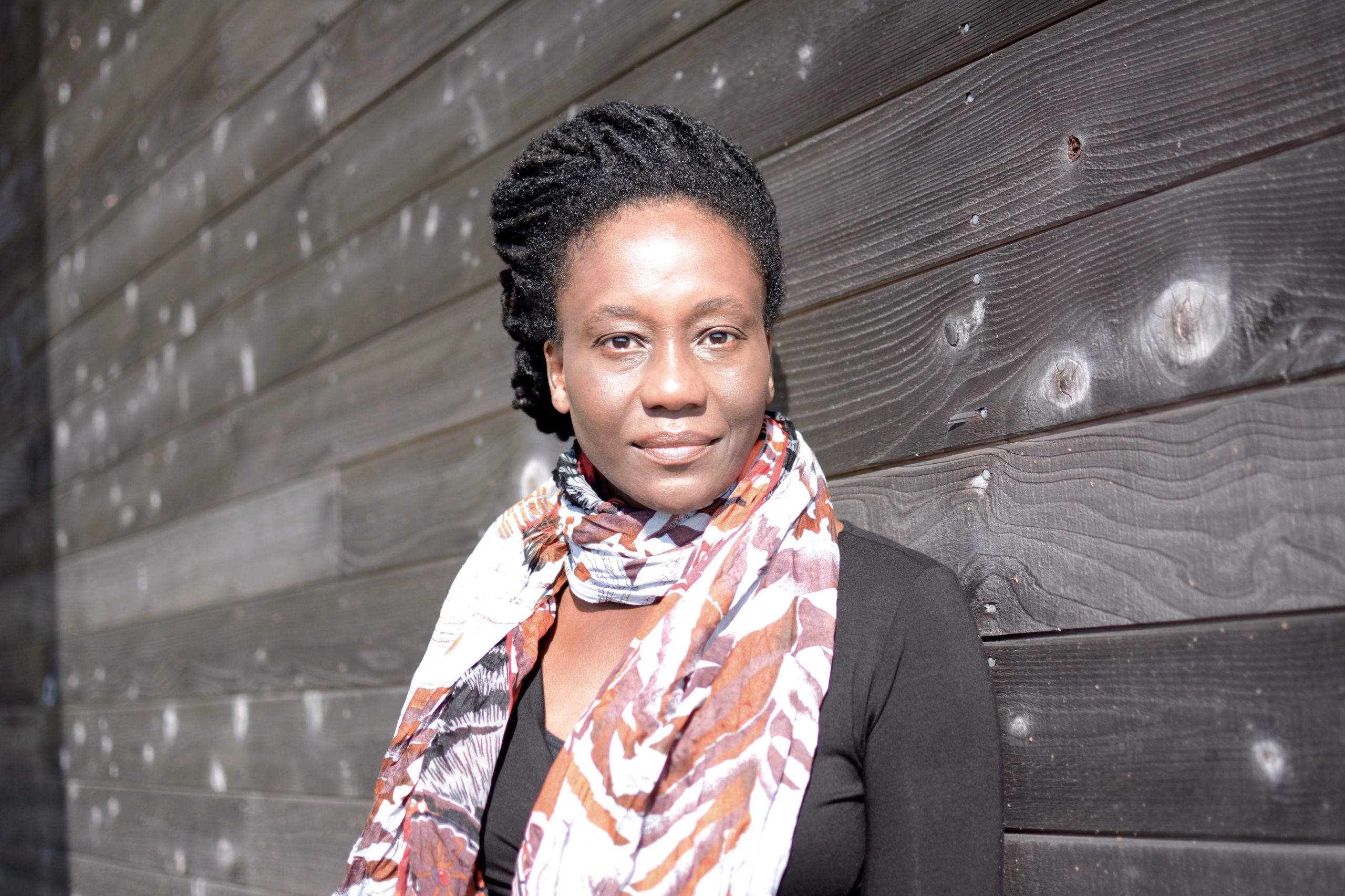Maria Korman ’27
Contributing Writer
2024 marks Professor Catina Bacote’s third year at Trinity. Born and raised in New Haven, Connecticut, she completed her undergraduate studies at Wesleyan University before earning a Master’s degree from Teachers College at Columbia University. Bacote went on to teach at both the middle and high school levels, gaining valuable experience in education. She received her MFA from Iowa University and joined Trinity as an assistant professor of English in 2022.
As part of a fellowship, Bacote has worked closely with Yale’s Center for the Study of Race, Indigeneity, and Transnational Migration. She collaborated with two other artists, utilizing Yale’s resources to work on her nonfiction book that highlights the impact of the 1980s drug epidemic on Black communities, including the one in which she grew up. Bacote said that the connection she had with the other artists in the fellowship gave her a much-needed support group, and prevented a feeling of “working in isolation.” Bacote anticipates the book to be released in 2026.
When asked about her starting point in her creative writing journey, Bacote fondly recalled a piece she typed up when she was seven, in which she wrote that she “wanted to be an artist.”
“It’s been in me a long time,” Bacote said. “I asked for a typewriter for Christmas, and I wrote stories about my family, my community, the things around me.” These themes continue to serve as a source of inspiration for Bacote’s writing today.
Initially, Bacote wasn’t sure how to turn creative writing into a career path, and started off teaching history and English in secondary schools. Eventually, she turned back to her own writing. At the time, she was living in New York City and began taking courses at the Gotham Writers’ Workshop, concurrent to teaching high school humanities.
“The workshop made me want to write more, and to be in an atmosphere where I could share my work,” Bacote reflected. Ultimately, it inspired her to pursue her MFA at the University of Iowa, while continuing her work as a teacher. While teaching at Warren Wilson College, Bacote developed a course on literature journalism and was inspired by the work of one of her students to write the essay, “The Other America.”
When she saw a job opening at Trinity’s English department, Bacote said she was overjoyed, because the campus location allowed her to return to her home state. And as someone who grew up in Connecticut, Trinity College was a name she had heard from a young age. At Trinity, Bacote has taught a number of courses, including Introduction to Creative Writing and The Art of Telling True Stories (a nonfiction-writing course). She is currently in the process of developing a course called Creative Writing in the Community, where students will be able to meet with Hartford writers and gain inspiration from the local writing community. She noted that across all her classes, students have been very hardworking, supportive of each other and invested in the process of writing and revision.
In her classes, Bacote embodies a warm, student-centered approach that emphasizes student agency. She has students read published work that they can use as models for their own work. Then, based on these readings, she helps them create practical, actionable steps to improve their own writing.
“I try to let students take the lead,” she said, “and help them understand that good writing is not abstract, and we have models to base our strategies on.” Her classes incorporate lively group discussions, independent writing time and student-led workshops.
Bacote said that reading student work and supporting them in their writing is beneficial for her own writing as well. “Almost in every class I learn something,” she remarked. “It could be an insight about an essay we’re discussing, or something else that I hadn’t initially noticed.”
Referencing her Intro to Creative writing class, Bacote mentioned that she really enjoys teaching students who are new to creative writing.
“Students don’t have preconceived notions since they’re new, so they’re open to trying new things and taking risks,” she said. “As a result, they bring a certain kind of energy that gets infused into their writing.”
Bacote said she tries to meet students where they are, and to turn creative writing into something accessible. She frequently utilizes in-class writing prompts as a fun and low-stakes way for students to kickstart the creative process. She also places a big emphasis on revision, because, in her words, “that is where most of the writing happens.”
Above all, she aims to help her students feel that they’re a part of a writing community, and that they have a great deal of agency in what they write.
“Students,” she said, “come into the class thinking, ‘I’m not a creative writer’ — and then they respond in ways they never expected.” She challenges the misconception that one must already know how to write in order to take a course. “We all tell stories in our daily lives, to our family and friends, so it’s not such a foreign concept. We all have the capacity to be creative and imaginative. That’s it, that’s all you need.”
Asked about the significance of writing in our everyday lives, Bacote emphasized the “power of stories. They’re not only for entertainment,” she explained, “they shape how we think about ourselves and the world, they shape our culture.” Bacote continually embraces these ideas in her teaching, encouraging students to consider the humanities in the bigger scope of the world.




+ There are no comments
Add yours